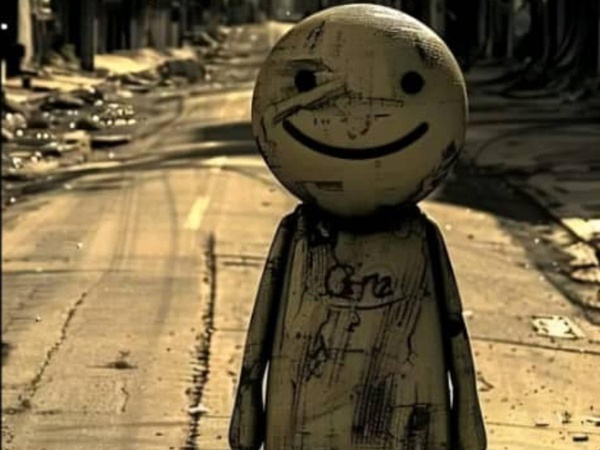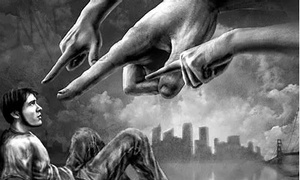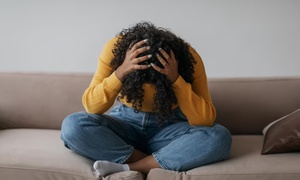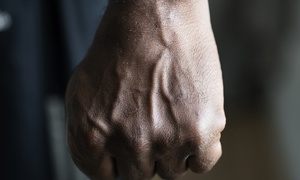<p> A Haunting We Learn to Live With</p><p><br></p><p>We all carry something behind us—memories, regrets, mistakes, heartbreaks. Some fade with time, but others linger like shadows that stretch across our present. These are the ghosts of our past—unseen, but deeply felt. They don’t rattle chains or slam doors, but they haunt in quieter, more painful ways: in moments of doubt, in sleepless nights, in the fear that we’ll never truly escape who we once were.</p><p><br></p><p>What Is the Ghost of the Past?</p><p><br></p><p>The ghost of the past is not always about tragedy. Sometimes, it’s the version of ourselves we left behind—naive, broken, ashamed, or angry. Sometimes it’s an unresolved trauma, a painful decision, a relationship that ended without closure, or a failure that still echoes.</p><p><br></p><p>These ghosts don’t ask for attention, but they demand it. They whisper when things are going well, “You don’t deserve this.” They appear when love knocks, reminding us of the time we were left or betrayed. They sit beside us during moments of success, murmuring that it’s only temporary.</p><p><br></p><p>The past, when unhealed, doesn’t stay in the past.</p><p><br></p><p>How the Ghost Haunts</p><p><br></p><p>The haunting isn’t constant—it’s cyclical. A scent, a place, a song, or a familiar face can resurrect everything we’ve buried. Suddenly, we’re no longer in the present. We’re back in the room where it happened, reliving it, feeling it all over again.</p><p><br></p><p>And often, we blame ourselves.</p><p><br></p><p>We wonder:</p><p><br></p><p>Why didn’t I speak up?</p><p><br></p><p>Why did I trust them?</p><p><br></p><p>Why did I let it happen?</p><p><br></p><p>Why can’t I let it go?</p><p><br></p><p><br></p><p>This self-blame becomes part of the haunting. It traps us in a cycle of shame, convincing us that healing is a luxury we don’t deserve.</p><p><br></p><p>The Weight of Unforgiveness</p><p><br></p><p>One of the heaviest chains we drag behind us is unforgiveness—especially the kind we withhold from ourselves. We can forgive others for hurting us, but when it comes to our own past decisions, we’re often merciless.</p><p><br></p><p>But here’s the truth: the ghost doesn’t lose its power because we ignore it. It loses power when we turn and face it.</p><p><br></p><p>Healing doesn’t mean erasing the past—it means understanding it, honoring the pain, and choosing not to let it control the present. It means saying: Yes, that happened. Yes, I hurt. But I am still worthy of peace.</p><p><br></p><p>Making Peace with the Ghost</p><p><br></p><p>To live with the ghost of your past doesn’t mean being haunted forever. It means learning its story. Asking: What did you come to teach me? Listening. Mourning. And then letting go of the need to rewrite the ending.</p><p><br></p><p>You may never forget. But you can forgive. You can close the door with compassion, not bitterness.</p><p><br></p><p>In doing so, you don’t destroy the ghost. You transform it. It becomes a reminder not of weakness, but of survival. Not of failure, but of growth.</p><p><br></p><p>Final Words</p><p><br></p><p>We all have ghosts. You are not alone. And if yours still follows you through quiet moments and long nights, take heart. Healing is not a one-time event. It’s a journey of returning to yourself—over and over—with more gentleness each time.</p><p><br></p><p>So when your ghost appears, don’t run. Sit with it. Acknowledge it. Then remind it—and yourself—that while the past may shape you, it does not define you.</p><p><br></p><p>You are not who you were. You are who you choose to become and you are stronger than your past. Face it and live your life the way you want.</p><p><br></p><p>Note:ONLY YOU CAN SAVE YOURSELF.</p>
















Comments